An Empowering Approach For Healthier Living…
A couple of weeks ago, Astrid Vlahakis, the podcast host of healYOUnaturally.com and I discussed some of the implications of the research discoveries shared in David Perlmutter, MD’s recent video with Dr. Melissa Schilling about the connection between Alzheimer’s Disease and diabetes. The information that is emerging about the potential mechanism of hyperinsulinemia in both of these conditions that we have been seeing of late is extremely important and will hopefully provide an impetus for change.
While the actual research findings that Dr. Shilling mentions regarding the physiological mechanisms that seem to be at play are extremely important, as are the dietary and other lifestyle changes that Dr. David Perlmutter, Dr. Mark Hyman, and several other leading Integrative and Functional Medicine doctors have been suggesting, I feel it is time to expose and transform the “elephant in the living room” that has been the missing piece in the dialogue.
You may be asking yourself, “What elephant?” or “What is that missing piece?” The 2015 report in the Journal of the American Medical Association (JAMA) seems pretty clear—with their estimation that 49%-52% of the US population has either diabetes or pre-diabetes, something needs to change. Most obviously, the way we live and eat in North America certainly needs an overhaul. And the information about the potential role of insulinemia (prediabetes) in the development of plaques in the brain that are associated with Alzheimer’s Disease is also pretty darn clear. The “elephant”…the “missing piece” is the HOW. If it is so clear, then why is the food predominantly consumed in our society not changing?
Why are so many well-intentioned people failing in their attempts to make dietary changes, even when they “know” what they are “supposed” to be eating? And why do the New Year’s Resolutions mostly fail and the majority of efforts to make dietary changes die on the vine, found to be unsustainable?
As I discuss in this podcast with Astrid, the problem is that the realities of human nature—the psychology of eating and the very complex relationships we have with food have not been adequately addressed. The result? Countless numbers of people feeling like failures—feeling discouraged, disheartened, hopeless and helpless to actually succeed in their efforts to reclaim their health. So then, on top of the physical health issues associated with these conditions, we layer a whole host of emotional problems on top—-depression, anxiety, frustration,….even relationship problems when loved-ones get upset when their partners or parents don’t do what they are told to do by their healthcare professionals. Literally, it can turn into a terrible mess.
The truth of the matter that I am now speaking out about is the potential benefits that might be enjoyed if everyone could take a step back and learn more about the psychology of eating and use what we know about emotional eating. By compassionately and intelligently incorporating this information into how we approach changing the paradigm of lifestyle changes, we can avoid most, if not all of these challenges, as well as be better equipped to be successful in actually making the behavioral lifestyle changes that might improve or even reverse some of these conditions!
With the massive body of research about the damaging effects of sugar and other processed carbs, I think we can all agree that these foods are really not our friends, as addictive as they may be and as integral to our lives as they may seem. We are truly blessed by the work of Dr. David Perlmutter and Dr. Hyman, (amongst others), who have been able to help thousands of people turn their lives around by sharing information about this reality, as well as offer very specific dietary protocols to reverse the damaging health trajectory of many peoples’ lives. They have indeed been an inspiration for me personally on my own health journey and the majority of the recipes on my book reflect their influence, so that followers of their work can joyfully enjoy the recipes in the book.
That said, many individuals are not ready or emotionally able to follow such strict protocols. For a lot of different reasons, the stress of making lifestyle changes can be overwhelming to a lot of people. The “comfort foods” that they have grown to rely on to help them cope with the challenges of living are just too hard to let go of. Because of this, the incidence of “failure to comply” with medical advice becomes normative. This very large subgroup (which I would venture to guess is actually the majority of the population) typically are not successful in their lifestyle change efforts—and just surrender to their inevitable rapid loss of health and accelerated date of expiry.
I find this reality tragic. This is a reality I know all too well, witnessing my own dad living with diabetes and heart disease, enduring open-heart surgeries, amputations, dialysis and a barrage of other treatments. I loved that man, who was lucky to live to the age of 67. He was a wonderful human being, as are countless others.
How I Am Trying To Make A Difference…
So, for those of you wondering why I am so passionate about not using any cane sugar in my book YUM and why I’ve tried to reduce the glycemic index (GI) as much as possible with the recipes, this information, the podcast interview and the Perlmutter-Shilling video will help you better understand some of the science behind what I’ve done in creating the book. You will also understand why while the book is mostly extremely low-glycemic, as well as why I have also included some recipes that while lower than standard fare may not be as crazy-low in GI as the rest of the recipes. This is also why I resisted all suggestions to include any “meal plans” or other prescriptions in this book.
I want to help not just those who are already on board with making significant lifestyle changes, but also empower those who have been reticent or even resistant to make dietary changes—people like my dad, to whom I have dedicated the book. This is also why I “hold the reader’s hand” as I teach them about the psychology of eating, about the challenges of changing habits, and easy principles to make lifestyle and other habit changes with ease, given the realities of being the habit-driven beings that we are as humans.
If you or anyone you love has been touched by Alzheimers Disease, diabetes, pre-diabetes/hyperinsulinemia, or any other neuro-degenerative conditions, such as Parkinsons Disease, you’ll realize how important these two interviews are. I hope you enjoy this information and these interviews, knowing that you are also invited to share any part of what I have to explained or linked here with others you love who you think might also benefit from the information and empowerment.
Feel free to post questions and comments below. We are all in this together and the more we can share and compassionately support each other on this adventure we call “Life”, the better!
 Theresa Nicassio Phd
Theresa Nicassio Phd
YUM: plant-based recipes for a gluten-free diet
yumfoodforliving.com

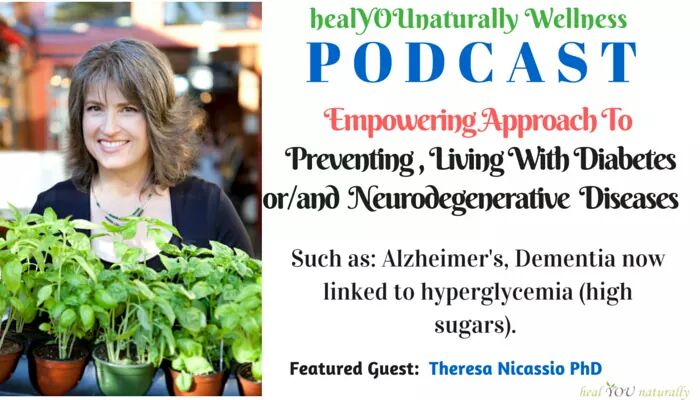
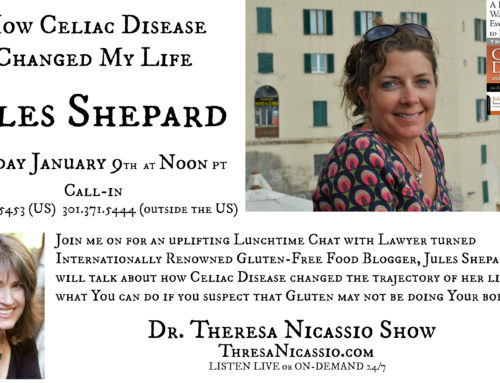


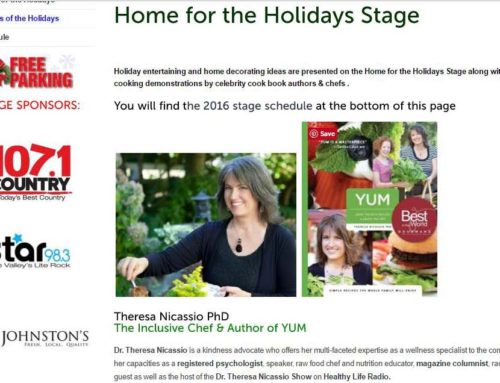




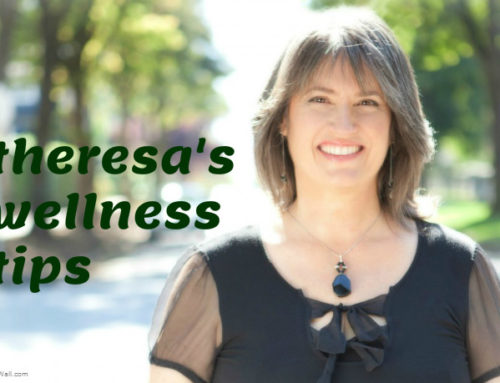
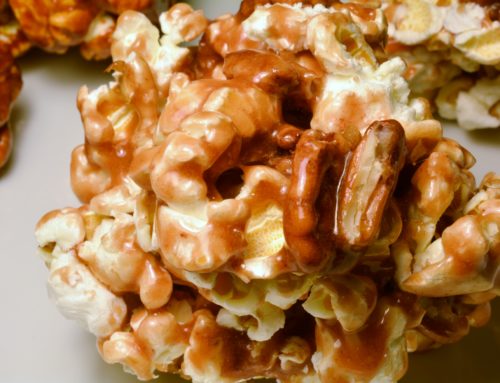


Connect With Us